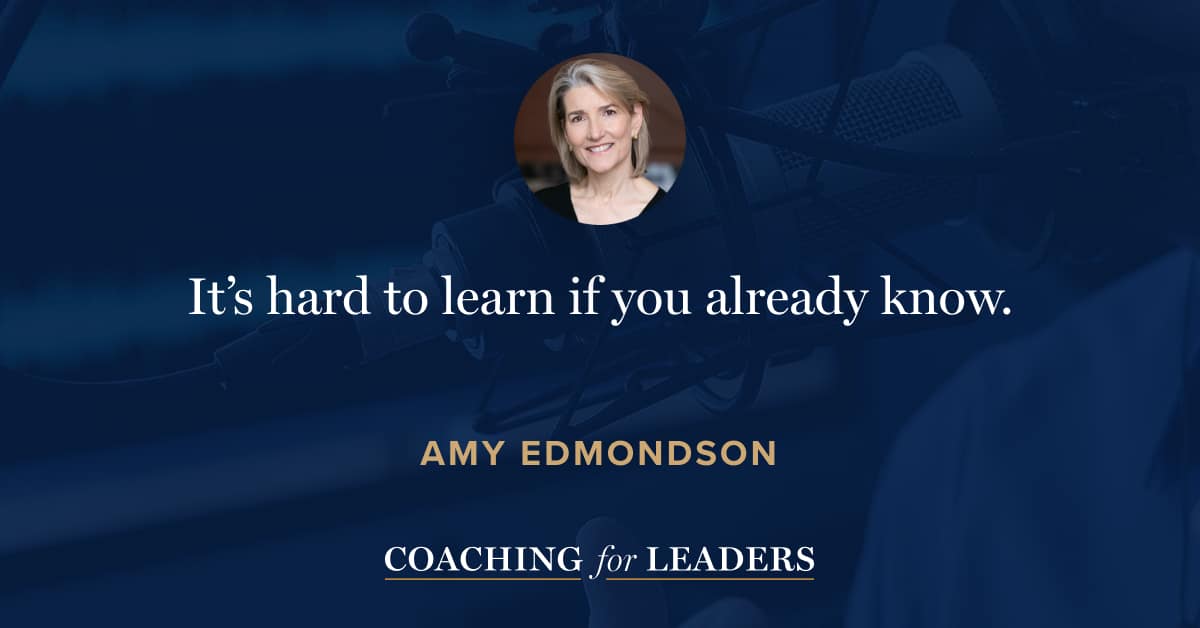Amy Edmondson: Right Kind of Wrong
Amy Edmondson is the Novartis Professor of Leadership and Management at the Harvard Business School, where she studies people and organizations seeking to make a positive difference in the world through the work they do. She has pioneered the concept of psychological safety for over twenty years and is recognized as number one on the Thinkers50 global ranking of management thinkers. She also received that organization’s Breakthrough Idea Award in 2019 and Talent Award in 2017. In 2019 she was first on HR Magazine’s list of the 20 Most Influential International Thinkers in Human Resources.
Her prior book, The Fearless Organization, explains psychological safety and has been translated into fifteen languages. In addition to publishing several books and numerous articles in top academic outlets, Amy has written for, or her work has been covered by, media such as The Wall Street Journal, The New York Times, The Washington Post, Financial Times, and many others. Her TED Talk on teaming has been viewed more than 3 million times. She is the author of Right Kind of Wrong: The Science of Failing Well*.
Many leaders espouse the value of talking about our failures. Yet, failure is a threat to our ego, so it turns out we’re better at learning from the failures of others than we are from our own. In this conversation, Amy and I explore how to do a better job of growing when we’re in the wrong.
Key Points
- Failure is a threat to our ego. As a result, we’re more likely to learn from the failures of others than from our own failures.
- It’s hard to learn if you already know. If you can frame situations more helpfully, it can substantially influence your ability to grow from being wrong.
- Disrupt the inevitable emotional response to being wrong by asking this: how was I feeling before this happened?
- Challenge yourself by considering if the content of your thoughts are useful for your goal. A key question: what other interpretation of the situation is possible? Pro tip: start with the phrase, “Just for fun…”
- Choose to say or do something that moves you closer to your goals. This question will help: what is going to best help me achieve my goals? Consider shifting from me to we and now to later.
Resources Mentioned
- Right Kind of Wrong: The Science of Failing Well* by Amy Edmondson
Interview Notes
Download my interview notes in PDF format (free membership required).
Related Episodes
- How to Build Psychological Safety, with Amy Edmondson (episode 404)
- The Value of Being Uncomfortable, with Neil Pasricha (episode 448)
- How to Quit Bad Stuff Faster, with Annie Duke (episode 607)
Discover More
Activate your free membership for full access to the entire library of interviews since 2011, searchable by topic. To accelerate your learning, uncover more inside Coaching for Leaders Plus.





